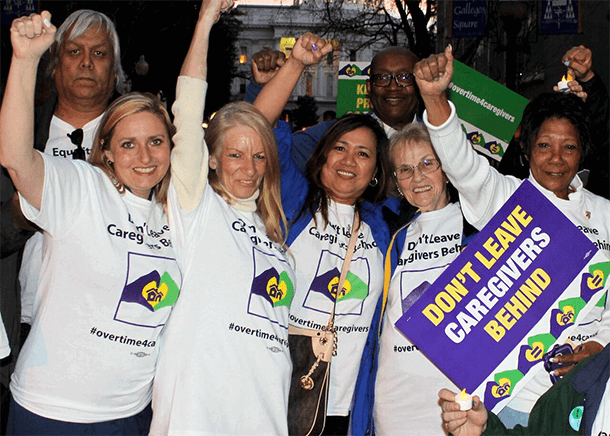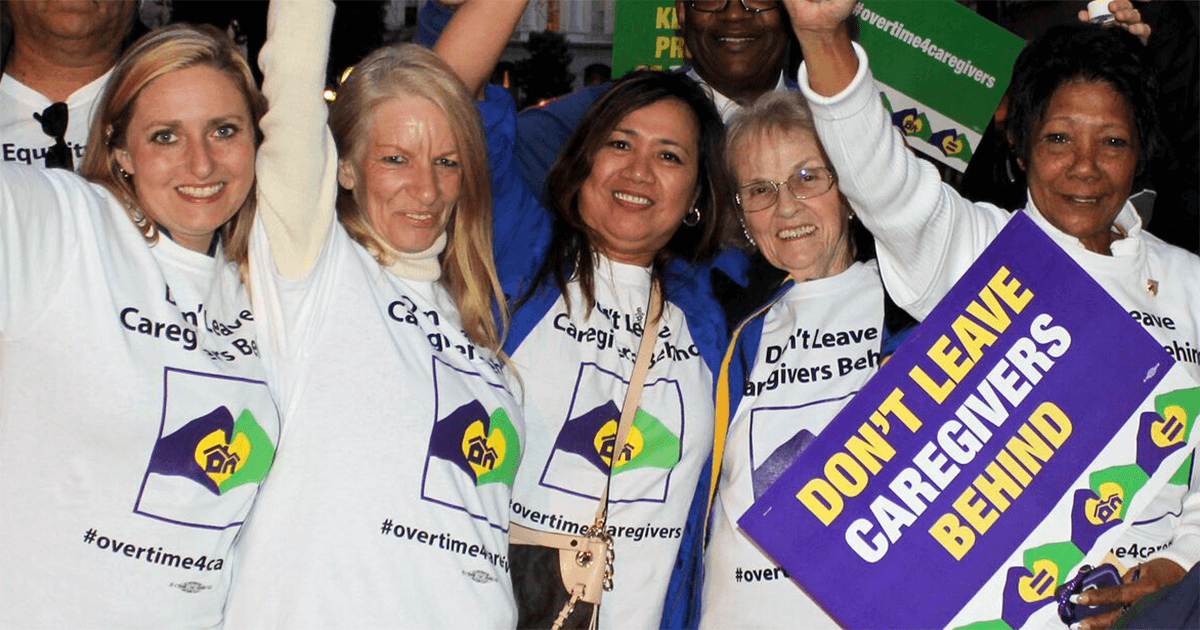
After years of advocating to improve the standard of care for California home care clients, In-Home Supportive Services (IHSS) providers began to receive overtime pay and pay for travel time and medical accompaniment time from the State of California – for the first time ever.
Until this week, caregivers did not receive basic labor protections under the Fair Labor Standards Act to ensure quality care for the state’s 400,000 IHSS clients. Now, thanks to the advocacy of AFSCME and its allies, home care providers will be fully paid for their work. The new rules went into effect Feb. 1.
“This is a historic win. After years of hard work, home care providers will finally gain the respect and equal treatment they deserve,” said Doug Moore, executive director of UDW/AFSCME Local 3930, the Homecare Providers Union and an AFSCME International vice president. “This victory shows us what we can accomplish when we work together!”
But it didn’t come without a fight. An anti-worker group attempted to stop the new rules in court, and state lawmakers proposed a 40-hour cap that would disrupt continuity of care for many IHSS clients and dramatically reduce work hours for a fifth of the IHSS workforce. UDW/AFSCME members spent countless hours rallying, lobbying, knocking on doors, writing letters and making phone calls to stop anti-worker proposals and finally win the same labor protections other workers enjoy.
Their work gained IHSS providers $850 million in state and federal dollars to fund overtime, travel time and medical accompaniment time, which not only helps workers pay for housing, groceries, utilities and other improvements, but also ensures quality care for nearly half a million seniors and people with disabilities across California.
“I work overtime every week, providing care for my uncle,” explained Roy Pridemore, a home care worker in Orange County. “We live paycheck-to-paycheck, and sometimes I have to take payday loans just to keep up with the bills. Winning overtime pay is a huge stress reliever, and I’m so proud that caregivers and our union had a hand in making this happen.”
At the same time, UDW and allies continue to advocate to ensure home care clients will not see hours of care reduced due to the new regulations, and have already secured several exemptions to hourly workweek limits to meet the needs of clients and family caregivers.
